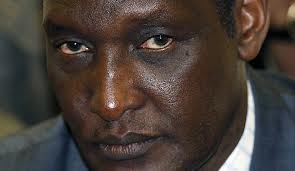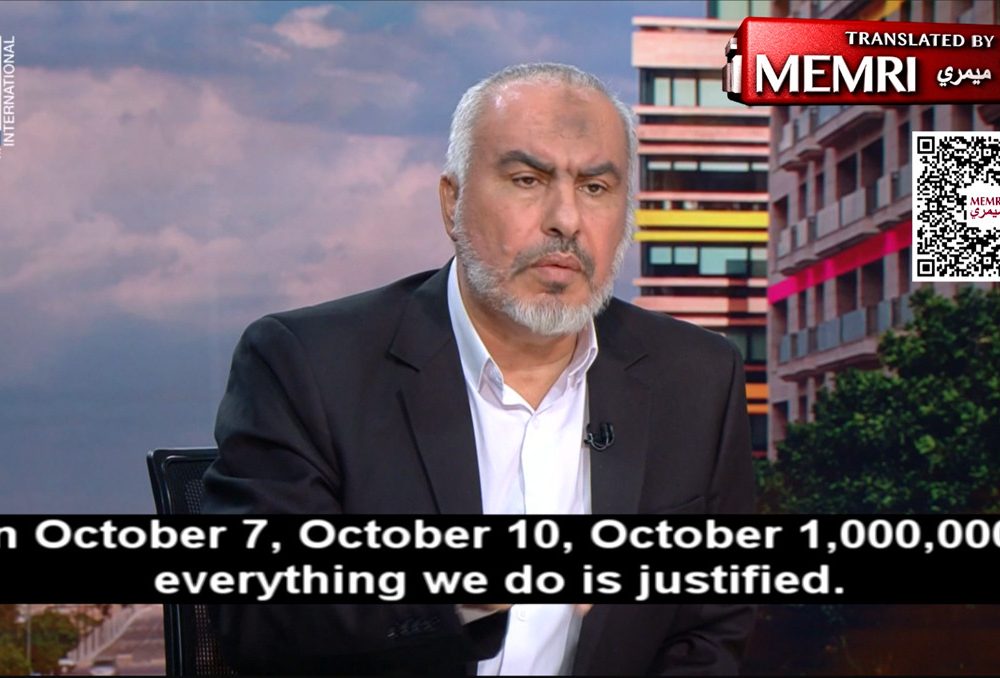Reports in January noted how Gerald Hensel, a high-ranking employee of Scholz & Friends, one of the two largest advertising agencies in Germany, used his professional position to launch a private war against the freedom of expression, under the slogan “No Money for the Right Wing!”
“Right wing” websites — those which have criticized the German government for its policies on, for example, Muslim mass-migration, the euro rescue or climate policy — should, according to Hensel, be cut off from advertising revenues. If they have no more money, so the thinking goes, it will be more difficult for them to stay in business; perhaps they would give up, and opinions differing from the mainstream would not be put into circulation.
Hensel explained his strategy on his private blog, which featured a red Soviet star: Large conglomerates that want to advertise on the Internet usually do not directly contact specific websites. Instead, computer programs recognize who is interested in a particular product or service, based on the user’s search behavior. The advertisement is personalized: a car maker will only approach users who are looking for cars. The advertisement, however, will not only appear on car websites, but on all sites the user visits in the following hours or days.
Hensel urged all of those who are disturbed by diverse views on the internet to exert pressure on companies, by branding particular websites as “right wing.” This pressure alone, according to his calculation, would ensure that the company would block the website in question.
His strategy succeeded: Within a few days, the website “Achse des Guten” (Axis of the Good) — one of the most popular German political blogs, which daily exposes the insanity of German politicians and journalists from a common-sense point of view — lost its entire advertising business. Advertising agencies simply cut off the website from their ads.
Those who are leading this war against the freedom of expression often claim innocence: the standard argument is that a company must be able to choose where it wants to place its advertisements, and that this choice has nothing to do with censorship.
The censorship, in fact, takes place elsewhere: where the thought police put pressure on companies to block certain websites. The threat — implicit or explicit — is that if you do not do what we say, we will tell the public that you are advertising with the “right wing,” and you know what that would mean for your business.
An internet petition aimed at forcing Amazon to boycott Breitbart News, shows how these activists view freedom of expression:
“Breitbart’s advertisers are dropping like flies. … People power has already forced BMW, T-Mobile and Kellogg’s and hundreds of other corporations to drop Breitbart — and now we are going to force Amazon to follow suit. Amazon is receiving loads of pressure already, and if we add our voices from across the planet together now, we can make sure Amazon cannot ignore us anymore.”
Activists such as these are not consumers who appeal to a company to meet legitimate ethical demands; rather, they act like a mafia against a restaurant owner who refuses to pay protection money. They occupy the tables with aggressive behavior and scare away the guests — until the owner capitulates, because the economic damage is too great and out of fear of penalties still to come.
Questions to German Boycotters
Gatestone Institute asked some of the large German companies boycotting Breitbart what had caused them to do so: Are there internal guidelines? Are other websites or newspapers boycotted? The answers came quickly and were, in most instances, clearly prefabricated. Inquiries proved fruitless.
AXA, for example, a multinational insurance company based in France, wrote: “AXA Deutschland avoids sites with content that does not fit our brand. The website you mention is part of this.”
When Gatestone asked about the criteria, and, with Breitbart, what was the decisive factor for the decision, the answer was: “Please understand that we do not disclose strategies and details of our advertising activities.”
Deutsche Telekom / T-Mobile wrote:
“Deutsche Telekom does not advertise on Breitbart.com. … Deutsche Telekom expressly only allows advertisements to be placed on established networks via ‘white listings.’ In addition, Telekom regularly defines and updates exclusion lists, so-called ‘black listings’ of internet pages with undesirable content. We react immediately if we are made aware of Telekom advertising on internet pages with undesirable content, or we ourselves notice Telekom advertising on such sites. I hope the information will be of help. Please understand that we do not comment on our media strategy.”
A follow-up question regarding “undesirable content” was answered by a repetition of the previous sentence.
Daimler AG (owner of Mercedes-Benz) sent a “corporate statement,” that looked pre-formulated, a kind of encyclical that defines the objectives of the politically correct automobile manufacturer:
“Daimler generally dissociates itself from all forms of discrimination and extremism. Mercedes-Benz has strict advertising guidelines, which are also adhered to by our market and media agencies. These advertising guidelines basically exclude platforms and channels which are not compatible with our principles. These include platforms with content that is extremist or politically polarizing, discriminatory, sexist or criminal in nature. Daimler has also called on its market and media agencies to demand compliance with the strict Mercedes-Benz advertising guidelines for the relevant ad networks.”
Criminal content? Extremist? Has Daimler made a mistake? We asked:
“Are you sure that the classification as ‘extremist’ is not perhaps due to a misunderstanding or a translation error? Could you perhaps mention a few examples of Breitbart articles that spread extremist thought? This would help readers better understand your position.”
As with the other companies, there was only a cut-and-paste type of response:
“As we have written, this includes platforms with content that is extremist or politically polarizing, discriminatory, sexist or criminal in nature…. Please understand that we will not name individual items.”
The press officer of BMW, responding by telephone, explained that BMW does not have “blacklists” but rather “whitelists,” which stipulate exactly where the group’s advertising should appear (he mentioned the New York Times as an example of a publication where BMW advertises). When told that German- and English-language newspapers had reported that BMW was boycotting Breitbart, he explained: With respect to the “No Money for the Right Wing” campaign launched by Gerald Hensel, journalists had repeatedly called and asked whether BMW advertised on Breitbart. BMW denied this. The journalists might have interpreted this as a “boycott.”
Lufthansa, when asked, responded:
“Our principles clearly exclude advertising on websites that represent violent, sexist, extremist and radical political content. The placement of Lufthansa advertising on Breitbart does not meet the stated principles. That is why we have blocked the page for banners that are automated through specialized agencies. The ‘blacklist’ also includes other websites that do not comply with the above principles.”
Does this mean that there is “violent, sexist, extremist and radical political content” on Breitbart? And why is it that answers on the subject of Breitbart always come so fast that they seem to have been shot from a gun? Do journalists frequently ask them about this? Lufthansa’s reply:
“We have defined these principles and decided that Lufthansa banners on Breitbart would not be appropriate. And your guess is correct, that your query was not the first on the subject.”

Lufthansa, which has Breitbart News on its advertising blacklist, claims to oppose “violence-glorifying, sexist, extremist as well as radical political content.” However, Lufthansa not only offers flights to Tehran, but praises the torture- and stoning-metropolis on its website. (Image source: Alexander Hassenstein/Getty Images) |
The answer from Volkswagen was:
“Volkswagen of America does not place advertisements on Breitbart.com. However, our Volkswagen trading companies in the USA are privately owned. Our dealers therefore decide independently where they place advertising.”
That sounded reasonable. The press officer of Audi (a Volkswagen subsidiary) with whom we also spoke was almost unintelligible:
“Audi of America has in the past not directly placed any advertising on Breitbart. However, the online banner of our American subsidiary was apparently on Breitbart. This happened by means of customer-specific targeting measures. They involved individual users whose surfing behavior resulted in a high degree of automotive interest, and were not bound to specific websites. Audi of America then blocked Breitbart from implementing the targeting measures.”
Gatestone: “You said that Audi targets users with high automotive interest. What about someone who shows a strong automotive interest, but who is also a reader of Breitbart News? Can one say that Audi would rather sell fewer cars than to advertise on Breitbart?”
Audi: “The question you asked does not arise for us.”
Gatestone: “What can I write in my article about why Audi has blocked the website Breitbart News?
Audi: “I can only refer to our previous statements. We generally do not communicate details of our advertising and communication planning.”
Boycott Hysteria and Censorship
Even some left-wing activists have now turned against the boycott hysteria that is spreading among major German conglomerates. On a pacifist site, “War Reporting” (Kriegsberichterstattung), a blogger named “Tom” warned: “Advertising boycott against Trump’s Breitbart portal” is “nonsense and dangerous for Daimler AG”:
“More than 36 million Americans read Breitbart.com as a news and debate forum — actually, almost every tenth American. To reduce the Breitbart portal to ‘racism’ or to brand it as ‘reactionary,’ ‘right-wing’ or ‘extremist,’ as some on the left, including advertising specialists, advertising portals and journalists are currently trying to do, misses the point.”
With regard to the statement by Daimler, which indirectly accuses Breitbart as a “platform with extremist or politically polarizing, discriminating … content,” the blogger wrote: “It is absurd to dismiss 36 million Americans as being polarized.” It is not clear where his number originated.
A commentator at the Frankfurter Allgemeine Zeitung (FAZ) wrote about the German boycott:
“It is currently in fashion to brand and denounce people with incorrect views as being ‘right wing.’ Companies do not want anything to do with that label and immediately reverse course — as you can follow on Twitter — if they are accused of supporting the wrong sites with their advertising… An advertising boycott is, by the way, not only a measure against allegedly dangerous [opinion] blogs and web portals, but above all against critical press coverage. Anyone who relies on such a thing, especially as a strategist of an advertising agency, positions economic power against the diversity of opinion and freedom of the press.”
That German companies immediately comply when someone asks them to boycott an American website is not only because they are accustomed to dance to the whistle of the “left,” but also due to German anti-Americanism and the German media campaign against Donald Trump — which is based on precisely that anti-Americanism.
Counter-Pressure is Necessary
It appears that none of the German corporations that have committed themselves to boycotting Breitbart understands what is at stake — protecting freedom of speech. It is highly probable that none of their decision-makers has ever read a single article on Breitbart. The only thing they appear to know is that this is an American website that has something to do with Trump and is unpopular with left-wing German journalists. From there, it is a simple business decision: with a few mouse-clicks, opponents of Breitbart — or of any policy with which they might disagree — can harm the image of a brand and thereby sales in Germany. To many, this might seem a bit too close to what Germany did in the 1930s and early 1940s.
Sadly however, there seems to be no benefit in opposing this extortion: No one in Germany will praise anyone for protecting freedom of speech — on the contrary. As far as the American market is concerned, they seem to think: America is far away, no one will ever know about it.
The only thing that could cause them to surrender to the pressure from activists is counter-pressure — people saying to them, “We are not pleased that you, without even informing yourselves, are submitting to activists who believe they have the right to determine which opinions may be published.” If there were such pressure, the decision to boycott would not be so pleasant. For those who do not like the self-appointed “morality police” entering the political arena and taking part in “boycott” actions against freedom of opinion, they themselves may consider boycotting those companies or reporting about them on Twitter.
“Have fun in Tehran”
The Breitbart boycotters, incidentally, seem to have no qualms about dealing with dictatorial regimes that habitually imprison and torture their citizens. During an annual meeting of Daimler AG, a shareholder asked the board of directors to which countries the company was exporting military vehicles. The answer was: Abu Dhabi, Algeria, Bahrain, Kuwait, Qatar, Saudi Arabia and Turkey, among others.
In Iran, Daimler wants to become market leader in commercial vehicles. In January 2016, Daimler Trucks CEO Wolfgang Bernhard arrived in Tehran “just a few hours” after the official lifting of sanctions against Iran. According to the Iranian news agency IRNA, Daimler paid 42 million euros in compensation to the Iranian state company Khodro because Daimler was no longer able to manufacture vehicles in Iran, as a result of sanctions imposed in 2010. Has Daimler never heard of the Iranian regime being rather “extremist, politically polarizing, discriminatory, sexist, and criminal”?
Similarly, Lufthansa, which allegedly opposes “violence-glorifying, sexist, extremist as well as radical political content,” not only offers flights to Tehran, but praises the torture- and stoning-metropolis on its website with the words: “The hustle and bustle on the streets has everything you expect from a megacity. … Have fun in Tehran before you have to catch your Lufthansa flight back home.”
Stefan Frank is a journalist and author based in Germany.




















 Ntayindi mpamvu ibitera n’uko abanyarwanda bamaze kumwimika mu mitima yabo,bamubona nk’umuntu ukomeye ushobora kubatabara,akaba ariyomvu amwiyumvamo bose babishatse bagarura amaso k’Uwiteka kuko ibyo bamutekerezaho atariko Imana ibibona ccyangwa bitari mu migambi y’Imana yo mu ijjuru.
Ntayindi mpamvu ibitera n’uko abanyarwanda bamaze kumwimika mu mitima yabo,bamubona nk’umuntu ukomeye ushobora kubatabara,akaba ariyomvu amwiyumvamo bose babishatse bagarura amaso k’Uwiteka kuko ibyo bamutekerezaho atariko Imana ibibona ccyangwa bitari mu migambi y’Imana yo mu ijjuru.

















